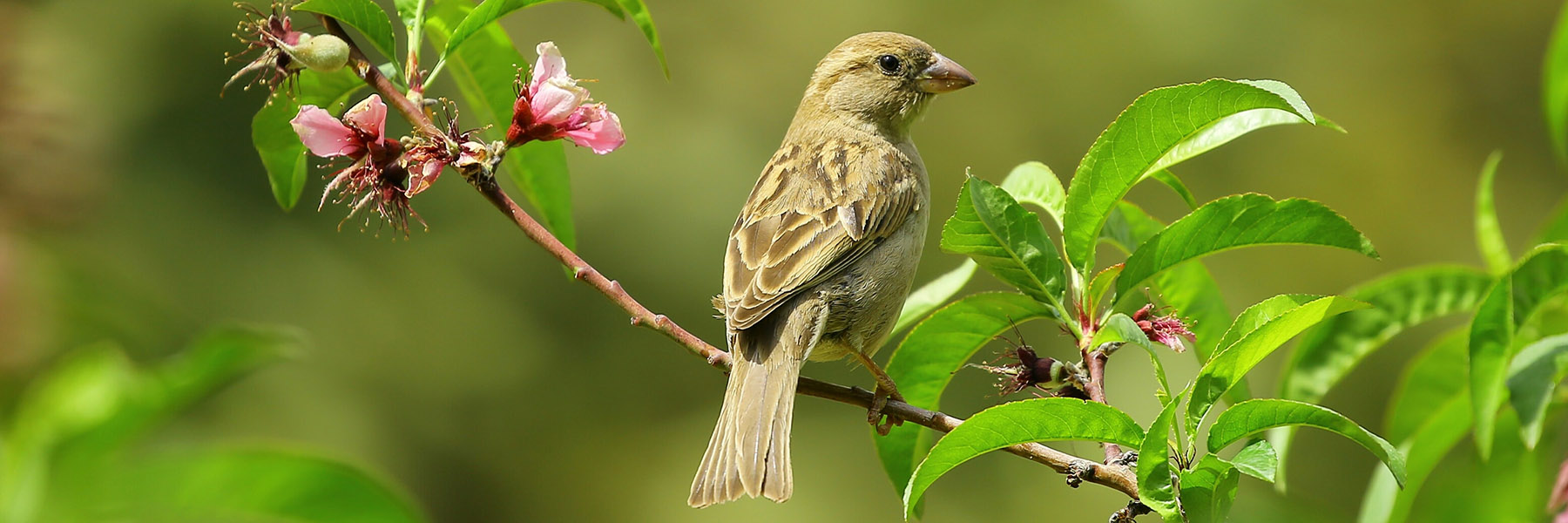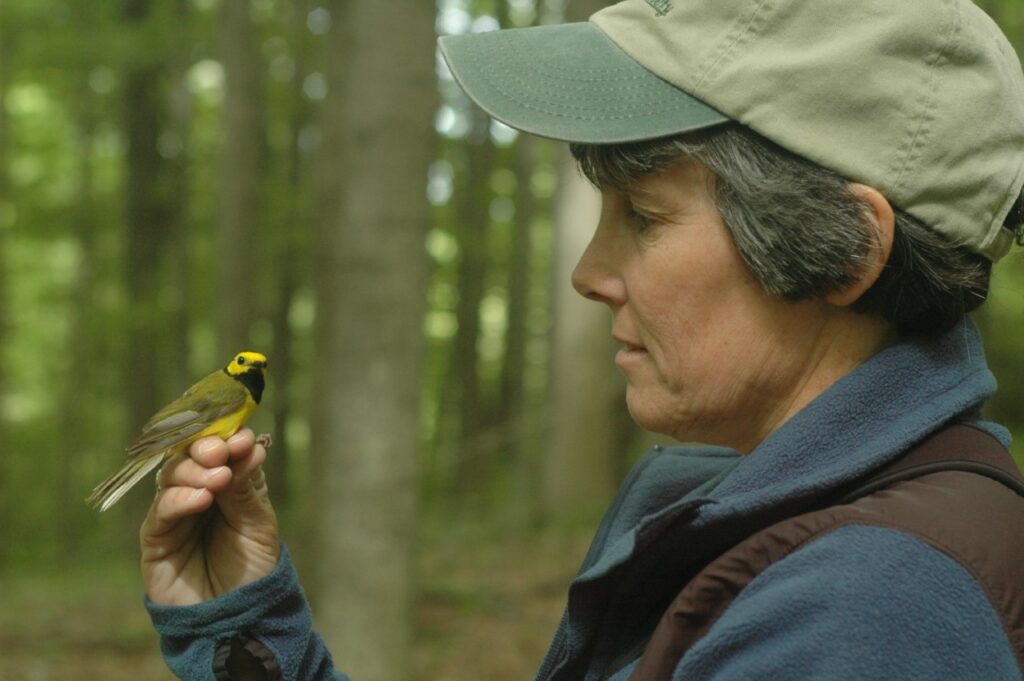
Bridget Stutchbury, professor and graduate program director in biology at York University’s Faculty of Science, is the recipient of the 2022 Elliott Coues Award presented by the American Ornithological Society (AOS).
Every year, AOS presents a range of awards honouring members for their ornithological research, and their service to the Society. The work of the 2022 awardees ranges across the spectrum of ornithological science, from conservation to ecology to evolution, and includes invaluable service to the AOS and ornithology.
“I am constantly amazed with, and excited by, the great work being done by AOS members to better understand and conserve birds,” said AOS president Mike Webster in the awards annoucement. “It is a great honour to recognize ‘the best of the best’ for their incredible work, from late-career scientists with a large body of work, to those just beginning careers that are clearly destined to be exceptional. I am proud to be working alongside these amazing ornithologists.”
Stutchbury is a Distinguished Research Professor in the Department of Biology at York University who has made innovative contributions to understanding the ecology and conservation of migratory and neotropical songbirds.
“I am honoured to be awarded the 2022 Elliot Coues Award from the American Ornithological Society, the world’s largest international ornithological society,” says Stutchbury.

Stutchbury is widely known for her research on avian mating systems, including work to understand the evolution of extra-pair mating in socially monogamous species such as tree swallows, purple martins, and hooded warblers. She also pioneered the use of light-level geolocators to track songbird migration. The use of this innovative technology has revolutionized the study of migratory strategies, carry-over effects, and migratory connectivity. Her landmark 2009 paper in Science, which introduced this new technology, has been cited over 500 times. Over her 37-year career, Stutchbury has published 120 peer-reviewed papers and three books.
“My bird research at York University first started over 30 years ago with the fun questions of why females cheat on their mates and how females pick the best mate. Within 10 years, it was clear that birds were in deep trouble, so I shifted my research to the very sober question of why so many songbird species are declining and what we can all do about it,” says Stutchbury. “I was the first researcher worldwide to track these tiny songbirds from start-to-finish during their epic annual migration, from their northern breeding sites to Central and South America and back. Now we can easily map out the key migration routes, stopover sites, and wintering sites of dozens of species and pinpoint high priority areas for habitat conservation.”
Stutchbury acknowledges her current and former graduate students who tirelessly did many months of field work, often in challenging conditions, to make these important new discoveries for their lab.
She also notes, “Bird conservation is an interdisciplinary problem and takes more than research. I would say my greatest accomplishment is my book Silence of the Songbirds, which was nominated for a Governor General’s Award. If birds are disappearing, then who will be next?”
